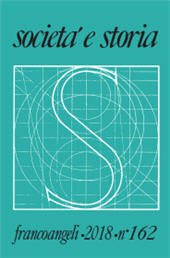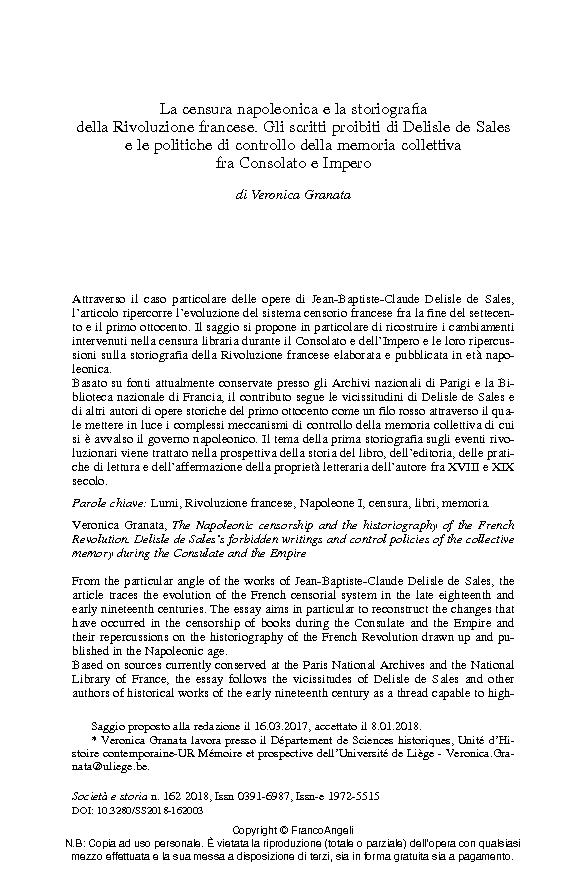La censura napoleonica e la storiografia della Rivoluzione francese : gli scritti proibiti di Delisle de Sales e le politiche di controllo della memoria collettiva tra Consolato e Impero
723-776 p.
Attraverso il caso particolare delle opere di Jean-Baptiste-Claude Delisle de Sales, l'articolo ripercorre l'evoluzione del sistema censorio francese fra la fine del settecento e il primo ottocento. Il saggio si propone in particolare di ricostruire i cambiamenti intervenuti nella censura libraria durante il Consolato e dell'Impero e le loro ripercussioni sulla storiografia della Rivoluzione francese elaborata e pubblicata in età napoleonica. Basato su fonti attualmente conservate presso gli Archivi nazionali di Parigi e la Biblioteca nazionale di Francia, il contributo segue le vicissitudini di Delisle de Sales e di altri autori di opere storiche del primo ottocento come un filo rosso attraverso il quale mettere in luce i complessi meccanismi di controllo della memoria collettiva di cui si è avvalso il governo napoleonico.
Il tema della prima storiografia sugli eventi rivoluzionari viene trattato nella prospettiva della storia del libro, dell'editoria, delle pratiche di lettura e dell'affermazione della proprietà letteraria dell'autore fra XVIII e XIX secolo. [Testo dell'editore].
From the particular angle of the works of Jean-Baptiste-Claude Delisle de Sales, the article traces the evolution of the French censorial system in the late eighteenth and early nineteenth centuries. The essay aims in particular to reconstruct the changes that have occurred in the censorship of books during the Consulate and the Empire and their repercussions on the historiography of the French Revolution drawn up and published in the Napoleonic age. Based on sources currently conserved at the Paris National Archives and the National Library of France, the essay follows the vicissitudes of Delisle de Sales and other authors of historical works of the early nineteenth century as a thread capable to high light the complex mechanisms of the control of collective memory implemented by the Napoleonic government.
The topic of the early historiography on revolutionary events is placed in the perspective of the history of the book, of publishing and of reading practices, as well as in the perspective of the affirmation of the author's literary property between the 18th and 19th centuries. [Publisher's text].
Is part of
Società e storia : 162, 4, 2018-
Articles from the same issue (available individually)
-
Information
ISSN: 1972-5515
DISCIPLINES
KEYWORDS
- Lumi, Rivoluzione francese, Napoleone I, censura, libri, memoria
- Enlightenment, French Revolution, Napoleon I, censorship, books, memory



